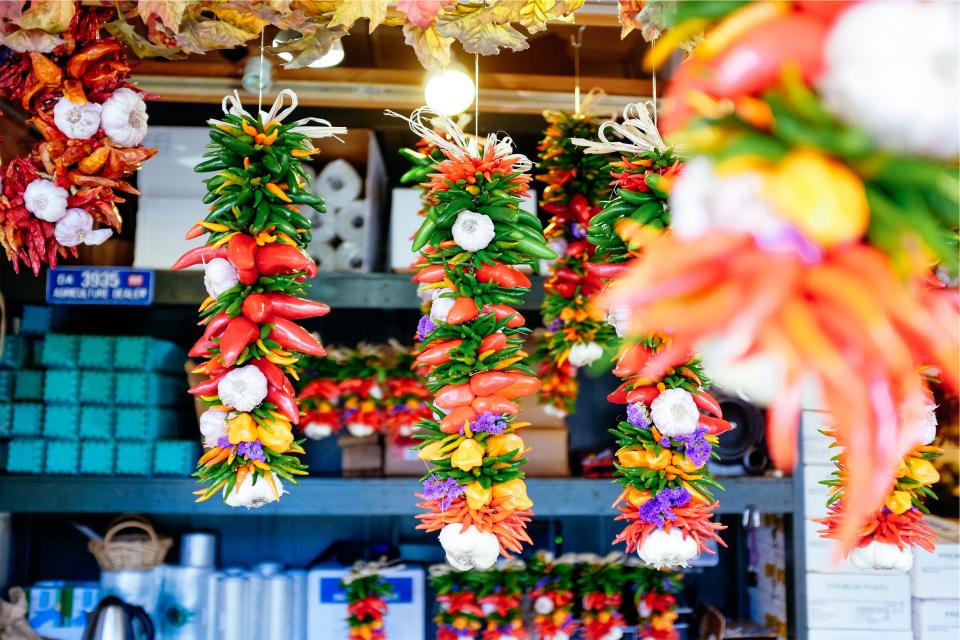Budgeting While Abroad
Travel blogger Lisa Saltagi once wrote that students on education abroad programs spend their free time in one of four ways: traveling, shopping, socializing, or eating.
No matter how you plan to spend your free time while abroad, having a budget in place will help you figure out what you can afford to do outside of your coursework and scheduled program activities.
Time to do a little research...
Before you leave the U.S., do some googling to find out what stuff is going to cost in your host country. Know there's something you can't live without and you'll have to buy in country? Search "cost of 'item you can't live without' in 'country you'll be in." Just like here in the U.S., prices can change, but this will give you a good idea to start with. The budget page for your program shows estimated costs for food and local transport, but it's not going to tell you how much it costs to eat at a restaurant or buy food from the grocery store. It also won't tell you if it's cheaper to travel the city by bus, train, or subway. Think about, and even google, what other types of every day costs you might encounter.
Planning Your Essentials
First, let's research. Ask friends or program directors, look through blogs, or google search for the general cost of lodging, food, course fees, books, etc. in your host country or region.
After that, see how much money you have left for those extras which are nice to have, but not essential.
A few quick tips:
- Skip Starbucks and you'll save some money that can go toward a train ticket.
- Eat in with your host family or use your meal plan and you might save some money to see a show or historical site.
Track Your Expenses
Remember those lame-looking checkbooks your parents used to track how much they spent because back then there was no internet or online banking? Doing something similar while you're abroad will actually help you stick to your budget.
Use a notebook or app on your phone to track each time you spend money somewhere. Was that 6 Euro for a coffee, 12 Pounds for a train ticket, 30 Yuan for those books? At the end of the day, see how much you spent. If you're coming in higher than you've budgeted, start looking for ways to cut back.
Sometimes, foreign currency can seem like monopoly money. It can be easy to spend money on things you don't really need. Souvenirs is one thing that a lot of students think they need to spend a lot of money on. A couple of tips - not everyone you know needs a souvenir. Think cheap, postcards are a great souvenir and easy to pack!
Avoiding Scams
Tourists are often an easy target for scam artists abroad. Along with straight-up thieves out to steal your purse or pickpocket your wallet, you'll also find locals looking to make some extra money from unsuspecting students.
Know the local currency and expect to be shortchanged.
If you pay with a large bill, be sure you get the correct change back before moving on. Some people will take the opportunity to short change you if they think you don't understand the local currency.
Carry small bills.
The last thing you want to hear when you pay for your taxi is "Sorry, I don't have change." Even if that's not true, you don't want to find yourself overpaying because neither of you had change...because you will have to pay, even if they don't have change.
Make common sense purchases.
Don't buy tickets from anyone other than an official vendor. Don't order food from a menu that doesn't list prices (unless that's the norm in your country). Use your head, maybe even more so than you would at home.

Live Local
When you arrive, spend a little time observing locals. Where do they buy groceries and go out to eat? How do they get around town (probably not always by taxi)? Notice anything different from what you're used to? Embrace it! If your program is in a country where there are few cows, or where they don't eat beef, like India, restaurants that serve juicy burgers may cost an arm and a leg. The more you can live like a local, the further you'll be able to stretch your budget!
